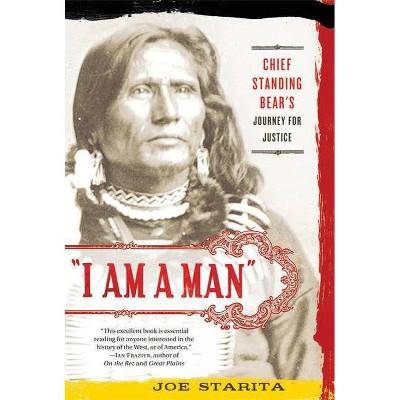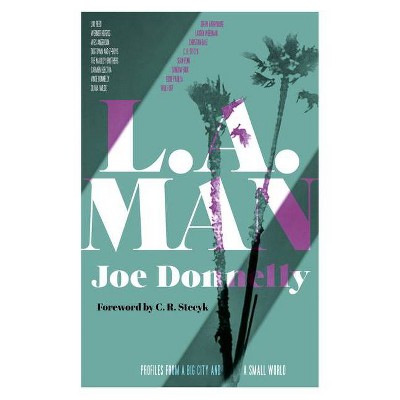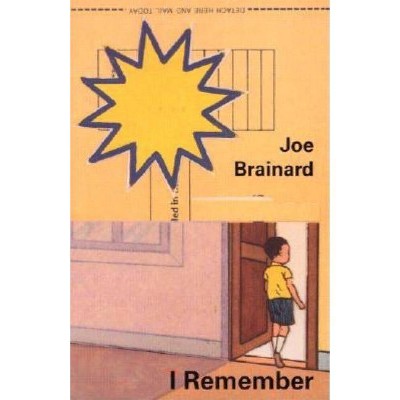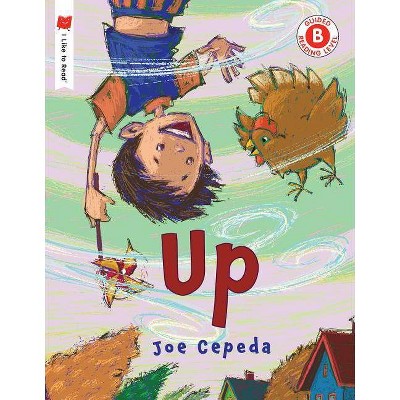"i Am a Man" - by Joe Starita (Paperback)

Similar Products
Products of same category from the store
AllProduct info
<p/><br></br><p><b> Book Synopsis </b></p></br></br><p>In 1877, Chief Standing Bear's Ponca Indian tribe was forcibly removed from their Nebraska homeland and marched to what was then known as Indian Territory (now Oklahoma), in what became the tribe's own Trail of Tears. <i>I Am a Man </i>chronicles what happened when Standing Bear set off on a six-hundred-mile walk to return the body of his only son to their traditional burial ground. Along the way, it examines the complex relationship between the United States government and the small, peaceful tribe and the legal consequences of land swaps and broken treaties, while never losing sight of the heartbreaking journey the Ponca endured. It is a story of survival---of a people left for dead who arose from the ashes of injustice, disease, neglect, starvation, humiliation, and termination. On another level, it is a story of life and death, despair and fortitude, freedom and patriotism. A story of Christian kindness and bureaucratic evil. And it is a story of hope---of a people still among us today, painstakingly preserving a cultural identity that had sustained them for centuries before their encounter with Lewis and Clark in the fall of 1804. <p/>Before it ends, Standing Bear's long journey home also explores fundamental issues of citizenship, constitutional protection, cultural identity, and the nature of democracy---issues that continue to resonate loudly in twenty-first-century America. It is a story that questions whether native sovereignty, tribal-based societies, and cultural survival are compatible with American democracy. Standing Bear successfully used habeas corpus, the only liberty included in the original text of the Constitution, to gain access to a federal court and ultimately his freedom. This account aptly illuminates how the nation's delicate system of checks and balances worked almost exactly as the Founding Fathers envisioned, a system arguably out of whack and under siege today. <p/>Joe Starita's well-researched and insightful account reads like historical fiction as his careful characterizations and vivid descriptions bring this piece of American history brilliantly to life.</p><p/><br></br><p><b> Review Quotes </b></p></br></br><br><p>"The painful, moving, inspiring, and important story of Chief Standing Bear has found a worthy chronicler in Joe Starita. This excellent book is essential reading for anyone interested in the history of the West, or of America." --<i>Ian Frazier, author of On the Rez and Great Plains</i> <p/>"<i>'I Am A Man</i><i>, ' </i>Joe Starita's account of Ponca Chief Standing Bear's search for justice, is a compelling story that needed to be told, and one that all Americans should read. Standing Bear's perseverance resulted in a legal shift in white America that was a far-reaching benefit for all native peoples, and Joe Starita has told the story with sensitivity and rare insight." --<i>Joseph M. Marshall III, author of The Journey of Crazy Horse, The Lakota Way, and The Day the World Ended at Little Bighorn</i> <p/>"What makes a man a citizen of the country in which he was born? Joe Starita vividly tells the little known story of Standing Bear, whose 1879 case in Federal Court was to the status of American Indians what the Dred Scott case was to African Americans. In Starita's book, the story of a great man from a very small tribe becomes a microcosm for the complex nineteenth century struggle that both the American Indians and the Federal government faced in trying to define the status of native people under the law. He paints an important and compelling picture of the plight of the Ponca, a tribe impaled by misguided paternalism, while hopelessly ensnarled in the bureaucratic red tape of an indecisive and out-of-touch government. It is a story that needs to be told and a book that needs to be read by anyone trying to understand the complex story of America's relationship with its native people." --<i>Bill Yenne, author of Sitting Bull and Indian Wars</i> <p/>"Starita paints a powerful picture of Standing Bear, the Ponca chief who, by wanting only to bury his son's bones in the lands of his ancestors, set in motion a series of events that resulted in all Native American peoples being given the full rights of American citizenship. It is a portrait of a man, a portrait of a time, and an evenhanded discussion of the complex legal and moral issues that lay beneath the struggle of our nation's first inhabitants to find justice in the land of their birth." --<i>Kent Nerburn, author of Chief Joseph and the Flight of the Nez Perce and Neither Wolf nor Dog</i> <p/>"Starita is careful to cover all the legal bases, but he is more interested in reaching general readers than legal historians. He succeeds admirably, especially on noting the outcome of the case, which both established legal personhood for American Indians and allowed Standing Bear to live once again in Nebraska. A worthy, readable companion to Peter Nabokov's <i>Native American Testimony</i>, Vine Deloria's <i>Custer Died for Your Sins</i> and other modern standards of Native American history." --<i>Kirkus Reviews</i> <p/>"Starita sympathetically documents the many injustices done to the Ponca people by the U.S. government during the latter portion of the 19th century through the experiences of Chief Standing Bear" --<i>Library Journal</i> <p/>"Starita masterfully portrays the chief's story in this compelling narrative of injustices finally righted. Starita transforms what could have been a dry academic survey of U.S. Indian policy into an engaging yarn, full of drama and sudden revelations." --<i>Publishers Weekly</i></p><br><p/><br></br><p><b> About the Author </b></p></br></br><p>Joe Starita was an investigative reporter and New York bureau chief for <i>The Miami Herald, </i>where one of his stories was a Pulitzer Prize finalist. He is now a professor at the University of Nebraska's College of Journalism and the author of <i>The Dull Knifes of Pine Ridge, </i> an account of four generations of a Lakota Sioux family, that garnered a second Pulitzer Prize nomination, won the Mountain and Plains Booksellers Association Award, and has been published in six foreign languages.
Price History
Cheapest price in the interval: 17.99 on November 8, 2021
Most expensive price in the interval: 17.99 on December 20, 2021
Price Archive shows prices from various stores, lets you see history and find the cheapest. There is no actual sale on the website. For all support, inquiry and suggestion messages communication@pricearchive.us




















